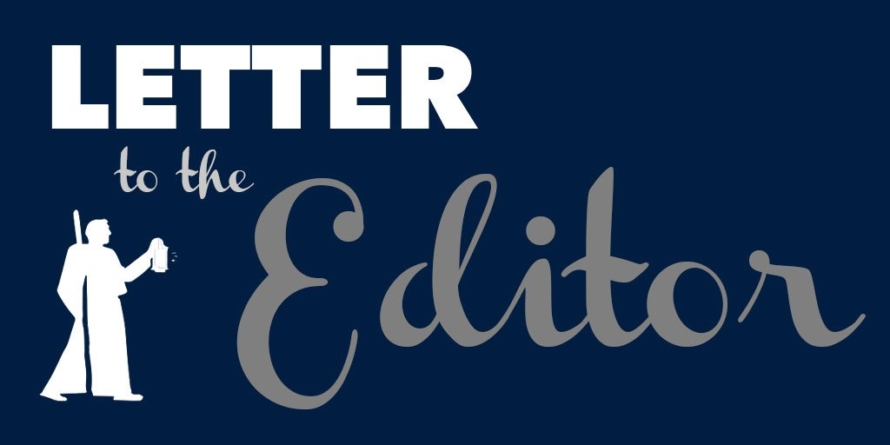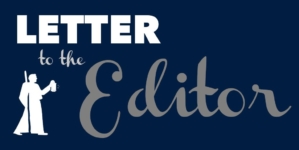‘THIRD WORLD’ POLITICS
Dear Editor,
The emergence of six new political parties on the political landscape of Guyana and their announcement that they will be contesting the upcoming elections has caused a stir in the body politic of the country.
I refer to this development as a mere stir because that’s what it is, nothing more, nothing less. There is no need for anyone to get hot and bothered over the ‘new kids on the block.’ In fact, anyone who does, must have had severe memory loss, or is too young to know the historical antecedents, or perhaps unaware of what obtains in other ‘Third World’ countries of the world.
In the Comoros, with a population of 783,000 there are twenty-four political parties.
In Djibouti, with a population of 961,000 there are eleven political parties.
In Fiji, with a population of 863,000 there are 16 political parties.
In Vanuatu, with a population of 276,244, there are 29 political parties.
In Suriname, with a population of 591,919, there are 20 political parties.
In Cape Verde, with a population of 560,899 there are seven political parties.
In the Seychelles, with a population of 97,000 there are seven political parties.
And in Belize, with a population of 383,000 there are 5 political parties.
Take Guyana, for example, in 1992 when eleven parties contested the elections the population was 740,134;
In 1997, with a population of 760,510 there were ten parties;
In 2001, with a population of 752,263 there were eight parties;
In 2006, with a population of 749,601 there were six parties;
In 2011, with a population of 749,100 there were four parties;
And in 2015, with a population of 768,514 there were six parties.
Come elections 2020, our population is estimated to be 779,405. Assuming there is no postponement of the March 2, date, more political parties other than the current six may emerge.
As the saying goes, in ‘Third World’ politics, no one should be surprised by the unexpected.
Apart from being rhythmic, ‘Third World’ politics can be as complex as an algorithm, human anatomy or cosmological physics. At the same time,
‘Third World’ politics can be wondrous and unexpected.
Thanks to the World Wide Web, we are now able to follow electoral politics in the countries of Asia, Africa, the Middle East (to some extent), Latin and Central America and the Caribbean to get insights into, what can be at times, a life and death struggle by political parties to stay in power, by others to win power and, yet by others to keep others out of office, since they themselves are probably light years away from ever winning political power.
The ultimate aim of the latter is not to hold office, but to hold and keep the balance of power in parliament.
There is something infinite about ‘Third World’ politics, the more we think we know it, the more its dynamics and evolution prove to us that we do not really know it.
Our knowledge is limited, because we can only go as far as life and experience has shown us. And even after doing the comparative analysis, there is still that infiniteness of ‘Third World’ politics.
Thus the perennial question: where is it going? What is it leading to?
After all, look at the electoral politics of The Gambia or South Africa, or of India and Pakistan, or The Lebanon and Saudi Arabia, or Chile and Haiti, or Guyana and Bolivia.
These are all multi-party, parliamentary/congressional democracies, yet from time to time, we have witnessed manifestations of political violence and police brutality against citizens participating in peaceful mass protests, oppression and suppression of the fundamental rights of citizens, fraudulent elections, marginalisation of ethnic minorities, harassment and intimidation, and even the jailing or brutal killing of journalists and political opponents.
Governments come and governments go in the ‘Third World’ countries, yet, hunger, starvation, disease, poverty, unemployment, social dislocation, human trafficking, domestic violence, crime, civil war, ethnic cleansing, poor delivery of goods and services, galloping inflation, and corruption persist in these countries.
Political elites in these countries rise to power using racial/ethnic, religious, xenophobic, tribal and cultural prejudices to mobilise their respective constituencies for their selfish gains, and to allow the rich to get richer while the poor get poorer.
In some of these countries, the right to vote is considered a waste of time, since there are no benefits to be gained, because the well-oiled electoral machinery is geared to facilitating continuous musical chairs through rigged elections.
It is therefore not for nothing that we hear people repeat Alphonse Karr’s well known phrase, “The more things change, the more they stay the same.”
Fatalistic as it seems, when placed in the context of ‘Third World’ politics, its relevance and validity is evident in the day to day life of many ‘Third World’ countries.
True, predictability of certain political, economic and social events in some ‘Third World’ can be intelligently anticipated, provided the appropriate scientific tools are utilised to do the research and analysis.
And the hostile international environment characterised by unfair trade practices, protectionism and the vagaries of globalisation are not to be ruled out as partly responsible for the harrowing state of affairs impacting these countries.
But what is most striking in almost all ‘Third World’ countries with a few exceptions, is that the social and political forces, be they supportive of the ruling elite or the political opposition, are all committed to a market economy and neo-liberalism. None are clamouring for social revolution or the establishment of a socialist state.
What people are demanding is greater accountability, transparency in government business, an end to corruption in government, greater participation of the popular forces in the affairs of government and, above all, free and fair elections.
The people want evolution not revolution.
A change from capitalism to socialism is not on their agenda.
The popular social and political forces want drastic reforms of the capitalist system, the institutions of governance and their structures. They too want to ‘Drain the swamp.’
Further, predictions in Third World countries can be made on the basis of assumptions that leave room for speculation.
It is in this context that the stir created by the formation of new political parties in Guyana must be viewed.
What this development, like previous developments on the eve of past elections in Guyana has done, is to reinforce the time-tested realisation that party politics in Guyana do not necessarily orbit exclusively around the PPP and the PNC.
That was in another era. Politics today is conducted in a completely different era. It is an era whose dominant features are market economics, neo-liberalism, populism and social media.
Like Ptolemy’s cosmological model, the two political behemoths are at the centre surrounded by six other parties who, having emerged, claim to have spheres of influence at various levels of the political, economic and social life of the country.
Some claim to have the indigenous peoples at their beck and call; others claim that the business community is supportive of their aims and objectives while others claim that the middle class and petit bourgeoisie will vote for them.
In the meantime, the two political behemoths continue to be permanent fixtures on the Guyanese political landscape and more so, in the psyche of Guyanese populace.
One contestant has already boasted of having the capacity to win thirty-six seats in a newly-elected parliament, a proposition that reeks with deep suspicion.
This exuberance and over-confidence as regards the coalition’s political fortunes is no doubt anchored in its efforts to return to power by fraudulent means.
Its efforts to use a flawed voters’ list that has the potential of being rejected by the political opposition, as happened twenty-seven years ago, appears to be the preferred means to achieving that end.
As we head into the March 2020 elections, the question currently being debated is, apart from the clash of the titans, which of the six new political formations will end up as a fixed star, and how many of them will end up either dead or badly wounded.
Guyana is considered a ‘Third World’ country, therefore we should not be surprised by the unexpected.
Yours faithfully
Clement J. Rohee






















